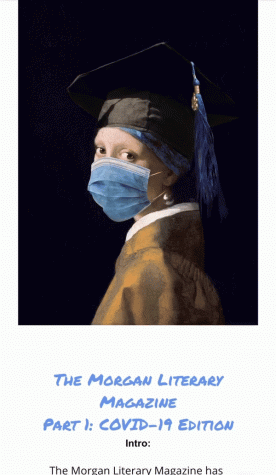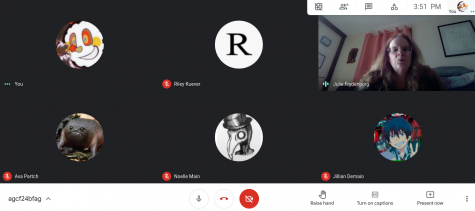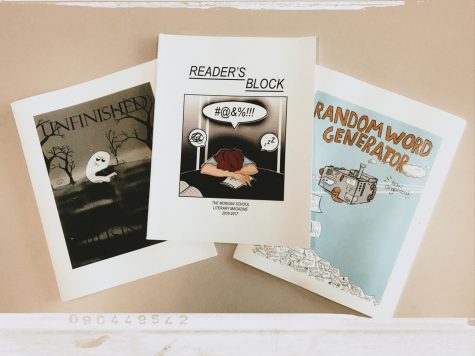An Inside Look at Morgan’s Lit Mag

The Morgan school stands as a partial epicenter for creativity and individualism. Within the slew of art clubs and band rallies lies a club nestled into the depths of the halls. In-room D29, stands the current English classroom of Julie Frydenborg. She has been committed to encouraging creativity from her students, and with that, has continuously hosted the Morgan Lit Mag. The literary magazine, Lit Mag for short, hosts a collection of student-written literature. From short stories to poems, this literary beacon works to promote creative writing. With that, it also houses many student-made pieces of artwork. This modern treasure trove offers a unique perspective into the lives of students, from their insecurities to their passions. However, with a magazine that averages thirty pages per piece, there is a growing curiosity in the club’s inner workings.
The Lit Mag, hosted in room d29, meets every other week on Wednesdays. In previous years, the group would meet face to face; however, with the current Covid restrictions, the clubs meet via Google meet.

The Google meetings stand at forty-five minutes to an hour intervals where the club discusses pieces. Pieces range from writing that can be included in the magazine to college essays. The club offers feedback to blooming writers who are still finding their style or to those who struggle with grammar. D29 offers a safe space to provide both constructive criticisms and general support for fellow writers. Many of the pieces shared, however, don’t even make it into the Lit Mag. This is both due to school censorship and how personal it may be to the writer. Though helpful, this creates a surprising content crunch as the release date draws near. As Mrs. Frydenborg puts it best, “Every year, it appears as though we do not have enough material for the magazine, which is stressful. By spring, we always have enough to create a great magazine.” Once spring approaches the magazine ends up collecting enough content to be published.
How does this take place if the club does not provide enough writing? Simple, work is collected from fellow English classes, and many student pieces are imported into the Lit Mag. The most recent example of this would be Mrs. Frydenborg’s Myth Monologues from her freshmen classes. Freshman Aslin Wolfe was one of the many whose myth monologues were submitted to the Lit Mag. Aslin is a new member of the Lit Mag and has worked to provide both art and writing. Their Myth monologue is one of their favorite works that will be submitted into the Lit Mag. In previous years this has taken place as well. Writing from Bergman and Chausse’s classes were previously added last year in order to bulk up the table of contents. The club even accepts general writing and art from those who are outside the club. Last year, the club promoted a version of the Lit Mag that was built off of the writings and journals from students and staff that were being affected by the Quarantine.
With a club built around writing and providing content for its readers, it’s a mystery how those involved can stay motivated in such hard times. There has been an alarming decrease in motivation among students due to the current pandemic. The Lit Mag members are not immune to such developments. Each in their way has struggled to put pencil to paper and find their voices this year. One student who has been affected by this is freshman Riley Kuever. Riley is a newer member to the Lit Mag family but can still relate to how taxing this year has been. “I sometimes find it more of a job to start writing or doing creative work. I find myself less motivated,” explained Riley. However, even with the overwhelming feelings of this year, they have worked to turn those feeling into new work. Everyone from Morgan could benefit from this method. However, in an attempt to combat writer’s block, the club has been working together to provide activities where those involved in the club can practice writing poems or general writing ad-libs.
The club itself has built itself around being a welcoming space to those who are on the shyer side or those who lack a good outlet for their emotions. It effectively brings kids out of their shells or at least encourages them to speak up. Even with the underlying deadline, the club still finds a way to put its students first and offers support and a place to not feel judged. Even though their work often goes unnoticed by the school, the club still offers a unique literary perspective and welcomes anyone who wishes to join or simply submit their work.


